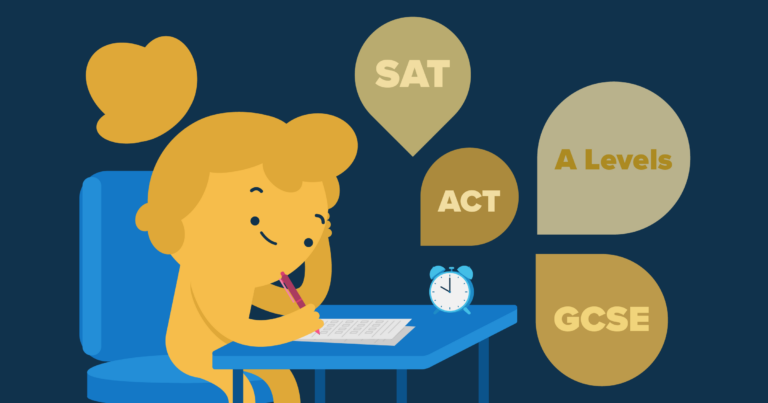What Makes a Good Evening Routine?
How do you set up an evening routine for success?
Imagine a situation: You got up at your regular time, followed your healthy morning routine, and headed out. Since the moment the door slammed behind you, you’ve been to classes, meetings, catered to a ton of people and their needs, learnt a thing or two, handed in a paper, had some coffee with your friends, and now finally, you’re at home. Boy, does that couch look inviting! But halt. Ordering takeout and not moving from the sofa and your smartphone screen does not actually sound like the most charming of evening routines.
No judgment here; we’re all tired and bail out on ourselves from time to time (which is totally OK to do now and again!). But devising and structuring your evening routine actually does have numerous benefits, including better sleep and rest, relieving stress, and fulfilling pre-bedtime hours. To set up a good evening routine, consider what it needs to have:
- Sustainability. Good evening routines are meant to be sustainable. If you cannot do it consistently, there’s probably a problem with it. Do you hope to achieve too much in the evening? Is it stressing you out if you cannot do it, or even taking away from your sleep time? There is no point in having an evening routine that comprises a rigid set of multiple tasks that bring you neither relaxation nor joy.
- Adaptability. Planning your evening down to every minute, filling it with mandatory workouts, reading, meditation, evening tea, journaling, and who knows what else will take you nowhere. In fact, it’s going to take you backwards on your sleep routine, impinge on your following day, and set you up for a vicious cycle.
- Meaning. The goal of an evening routine is not to have you doing things for the sake of being productive. It’s all about setting you up for a decent night of sleep and a pleasant morning, rather than grouchy regret about the previous all-nighter. Evening routines should be easy to follow, relaxing, and rewarding at the end of the day, ESPECIALLY if you had a bad one.
Things to Consider: An Evening Routine Checklist
This article provides you with a wide variety of ideas to incorporate into your evening routine. As you check them out and play with them, always be mindful of how you feel while doing them. Ask yourself the following questions:
- Does this help me relax? Do I feel well while doing it?
- Do I feel better when I structure my evening like this?
- Does doing these things improve my sleep?
- Do I look forward to my evening routine?
- Do I feel ready to sleep and tackle tomorrow?
If the answer to any of these questions is no (be it a ‘No.’, ‘NO!’, or ‘… uh, maybe, not really …’), you need to tweak your plans. It’s a trial-and-error experience, but you can fix your routine by reducing the time spent on some activities, changing things up, or simply ditching what doesn’t bring you joy.
Evening Routine Ideas

As I mentioned, there are many ideas about what you can do in the evening to ensure you reap the benefits. In no case should you try to cram them all into your evening! Toggle with your preferences and see what works for you.
Since there are things that are just not recommended to do in late hours, you can arrange your routines around this simple time division:
Early-Evening-Routine Ideas
- Cook a healthy dinner. I did diss takeout food just a few paragraphs above. There’s nothing wrong with an occasional Uber Eats hack, but it’s much more beneficial to your body (and your budget) to cook your meals. Don’t even hide behind the ‘I can’t cook’ excuse; everyone can cook. There are a bunch of quick-and-easy recipes floating online, and you can make most of them for multiple days and store them in the fridge.
- Share a meal with your loved ones. Whether you still live with your parents, your partner, roommates, or pets, sharing a meal is a fulfilling act. You can unwind by chatting with them, appreciating your time together, and exchanging news.
- Do NOT share a meal with your work. Seriously, take a break. Even if you absolutely love your work or research and call your dissertation your baby (I certainly do, and it is a labour of love), maintain healthy boundaries from it, lest you burn out.
- Also, try to have dinner at least three hours before bed; otherwise, your body will be too busy digesting when you go to bed, expending energy on it instead of recuperating.
- Read a book. The merits of reading need no reinforcement. Books are a great way to unwind after a long day. If you don’t like reading, it’s time to reconsider your stance and get acquainted with some new and fitting paperbacks. SuggestMeABook will give you plenty of ideas.
- Do a workout. If you still haven’t started doing some form of exercise, you definitely should. Be it a brisk walk or a full-blown gym session with sweating and grunting under the heavy weights, exercise has many benefits for your mind and body. Try to do this at least two hours before bed, as strenuous exercise boosts cortisol levels, which is likely to keep you awake.
- Try some yoga. Many people swear by yoga practices and have good reasons to – it’s relaxing, strengthens your body, and improves mindfulness. If you are new to it, try some of these beginner routines.
- Do something for a good cause. Inform yourself about volunteer activities that you can do from the comfort of your home. Have you ever heard of The Big Issue? It’s a street magazine that employs people from the margins, allowing them to reintegrate into society, take care of themselves, and lead a decent life. The magazine is always looking for contributors and helpers. Conversely, you can subscribe and spend some evening time reading these papers – they are actually very good in addition to their great cause!
- Pack for tomorrow and/or do meal prep. Why panic in the morning when you can pack what you need before bed. If you’re prepping meals for the rest of the week, the evening is a good time to do it. There’s just something calming about tossing different spices into a pot, stirring and enjoying the wafting scents.
- Clean up your space. Elbow-grease scrubbing is equally stress-relieving as doing yoga. Furthermore, you’re doing your future self a favour because you won’t get up in the morning and be met with a sink full of smelly dishes.
- Learn/practise a new skill. If you’ve always wanted to learn to play an instrument, now’s the time. Dreaming of becoming a writer? Go for 100–150 words a day, and you’ll still be making decent progress towards your goals. Check coursera.com out and learn something new for free. You’ll have fun and expand your horizon without any dramatic tests, evaluations, or exams at the end of it.
Late-Evening-Routine Ideas
- Meditation. Take some time for yourself, find a quiet spot, and get comfortable. It’s time to be mindful of yourself and your body. If you’ve never tried it, this may sound vague and fancy, but don’t worry, there are many guided meditation resources online!
- Bedtime stretches. Similarly, try to relax your body by doing light, unobtrusive stretches. Make sure nothing hurts while doing them, but give those limbs proper attention, holding each stretch for about 30 seconds. Work from your neck and shoulders downwards and do some full-body stretches.

- Reflect on your day. Now is the time to address all those ridiculous thoughts that might plague you when you go to bed because your brain has just decided it was an excellent time to ponder on them. Out of spite. Well, not really. We tend to suppress negative emotions, but we are more emotionally vulnerable at night. When your defences are down, your brain processes those feelings, much to the displeasure of everyone involved, including your sleep schedule, your well-being, Sandman, and the need for rest.
- Plan the next day. Write your to-do list for the next day and include at least one thing you’re looking forward to.
- Drop the screen if you can. Yes, yes, they all say that, but I know it’s virtually impossible to stop looking at your phone before bed. Given how dependent we are on them, even those studies confirming the adverse effects of blue-light tend to step back and give way to pre-bed scrolling and reading.
- Puzzles. Personally, I have rediscovered the calming effects of piecing together a lovely Discworld Jigsaw puzzle (it’s the one with Granny Weatherwax). I heartily suggest you treat yourself to a puzzle from eBay (budgeting, remember?) and spend twenty-ish minutes on it in the evening.
- Journal. You can doodle, sketch, write your heart out, and reflect on your day while relaxing and slowly getting sleepy. Journaling increases mindfulness and helps you come to terms with the day’s events so that you don’t feel bad about them later.
Feeling Lost? Look at These Evening Routine Examples
As I said, brace yourself! Among the many ideas listed above, it would be silly to try and enjoy all of them (especially not in one day), but here are a few more structured plans for you:
A) 18:00. Finish work.
18:00–19:00. Prepare dinner and enjoy it (don’t forget to clean up the dishes).
19:00–20:00. Rest&Digest™. During this time, you could read a book, check the news, or solve a crossword puzzle. The point is to engage your brain in a relaxing way.
20:00–20:30. Journal and reflect on your day.
20:30–21:30. Watch your favourite show/film/vlog.
21:30. Slowly prepare for bed.
B) 18:00. Finish work.
18:00–19:00. Have some nutritious dinner.
19:00–20:00. Rest&Digest™ and enjoy your YOU time, be it scrolling, reading, or watching TV.
20:00–21:30. Get your gym gear on and bust a move!
21:30. Post-workout snack (try not to overeat and stick to nutritious, carb- and protein-based choices), shower, stretches, and bed.
C) 18:00. As you can guess, dinner and a digestion pause are inevitable.
19:30–20:30. Take your pet out for a walk.
20:30–21:30. After arguing with your pet about its bath, spend some quality time with your loved ones. Call your parents, enjoy the bliss of cuddles with your significant other, check in with your friends, and, sure, stalk your crush on Instagram (you can DM them too).
22:00. Meditate or do some yoga for better sleep and hit the sheets.
Of course, these are only broad suggestions – take them as guidelines rather than rigid plans. Test the timing, swap ideas, and find what works best for you.
Mr Sandman, Give Me a Dream – An Evening Routine for Better Sleep
I hope I haven’t given you an endless earworm right now (if so, quickly listen to the end of the song on YouTube). You can improve your sleep quality by working on your bedtime habits. Apart from yoga and meditation, which actively relax your mind and muscles, there are a few more crucial things to consider:
- Go to bed at the same time every day. If you need a reminder, then set one up on your phone and start rolling into bed around the same time every evening, preferably before 11pm. Your body will soon get used to it and grant you extra REM time.
- Air your room regularly. Studies have shown that slightly cooler rooms are optimal for good sleep. You’re more likely to toss and turn if it’s warmer.
- Don’t do anything else on your bed. Beds are made for sleeping and lovemaking, so try to avoid using them for different stuff like work or eating. If your brain starts associating your bed with many activities, you’ll find it harder to sleep.
- Avoid stress before bed. This one goes without saying. If you start getting too excited or worked up before bed, your hormones will not cooperate in the whole falling asleep business.
- Be grateful for the good things in life. Allow yourself to fall asleep with positive thoughts in your head rather than negative ones.
Set Up Your Evening Routine for Success
Let’s get real here. You can look at millions of ideas and suggestions about how to spend your evenings, but if you don’t commit to them, there’s hardly any point. Habits and consistency lie at the core of each routine, and it takes about three weeks to build a habit. That means you have to be down for a commitment to yourself first and then to your routine. You’re creating one to improve your life, after all.
Before you lunge into unrealistic expectations, consider your current evening routine. What could be better? Is there something still working for you? What kind of activities are you looking for, high or low intensity? How much time can you devote to your routine?
If you despise routines, you need to address the potential challenge of setting one up. Instead of sticking to the same thing every day, leave out an hour or two-hour-long window in which you will do different things (e.g. watching a movie one day, going to the gym on the next, reading a book on the third, etc.). Make sure your schedule is flexible and easily adapted; evenings are meant for unwinding, not stress.
But Always Remember, the Best Morning and Evening Routines…
… are the ones you can stick to. There are many ways to build an evening routine, but you ought to consider how to make it sustainable. Choose activities that you have a personal interest in and will relax you once you do them. After a while, you will form a positive association with those activities, and they will become your source of comfort even after challenging and stressful days.
Find out what works for you, and have sweet dreams!
Image source: Don’t Sleep On These Sleep Memes (40 pics) – Izismile.com












